MAS+Havana - STEPS: making Havana’s streets friendlier
19 August 2019
On Tuesday 16 July UCL’s multidisciplinary MAS+Havana team, with their Cuban partners, hosted an event at UCL to present the results of their work.
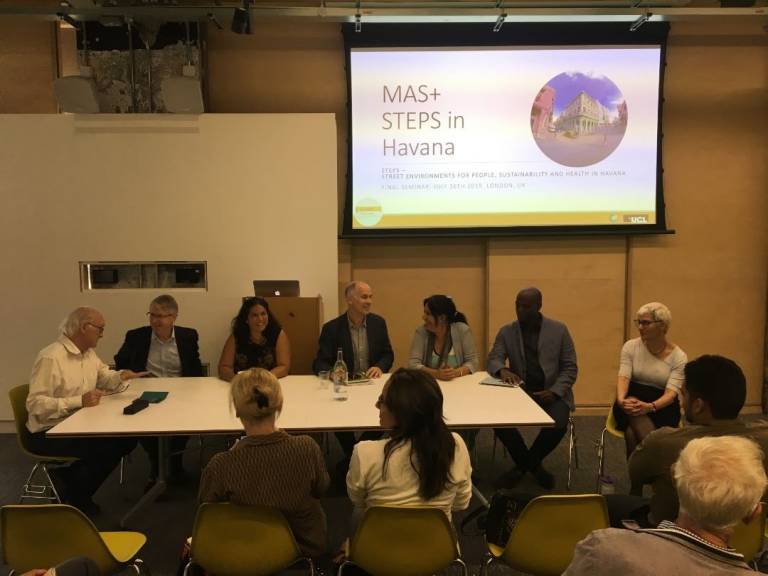
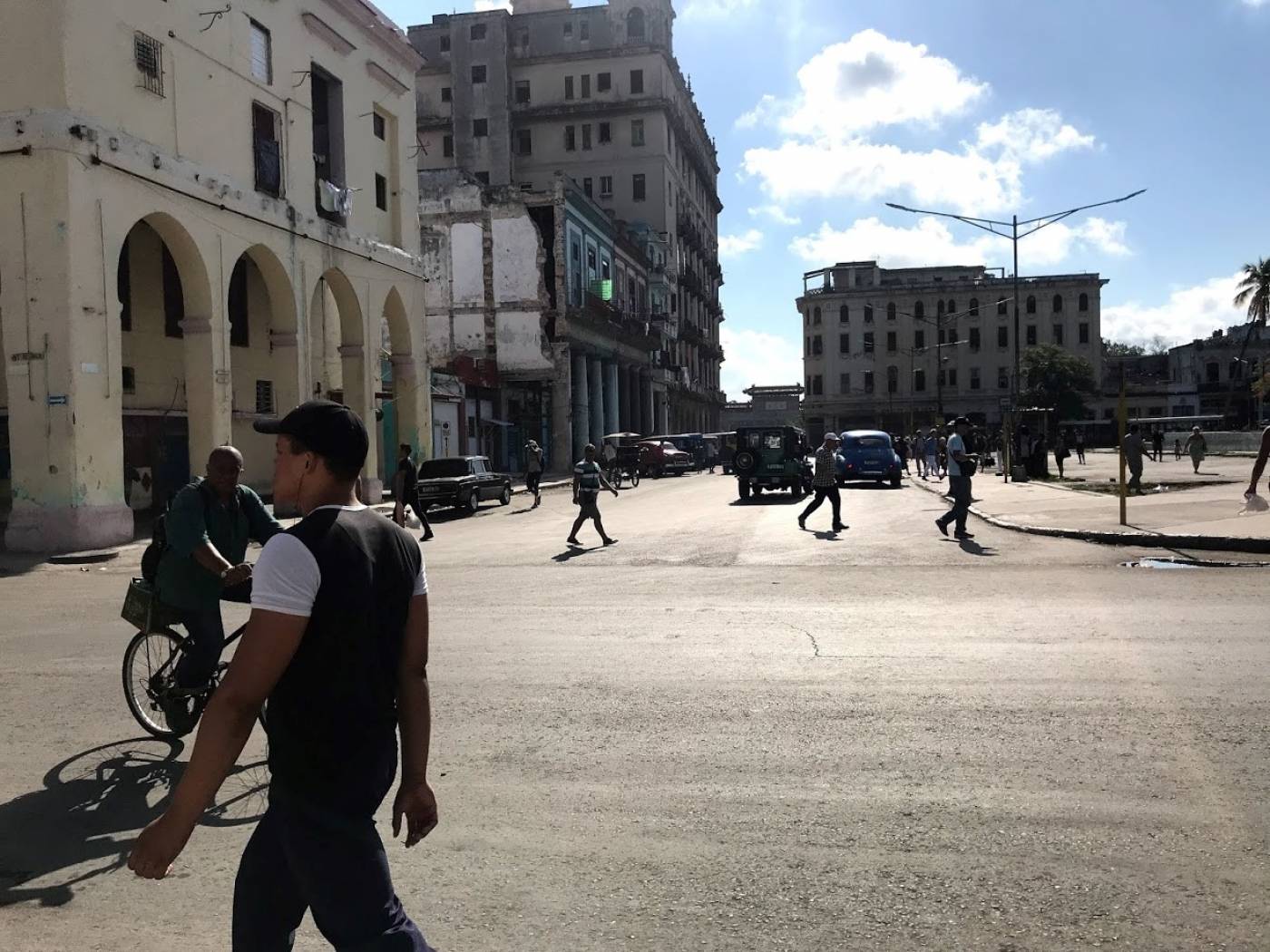
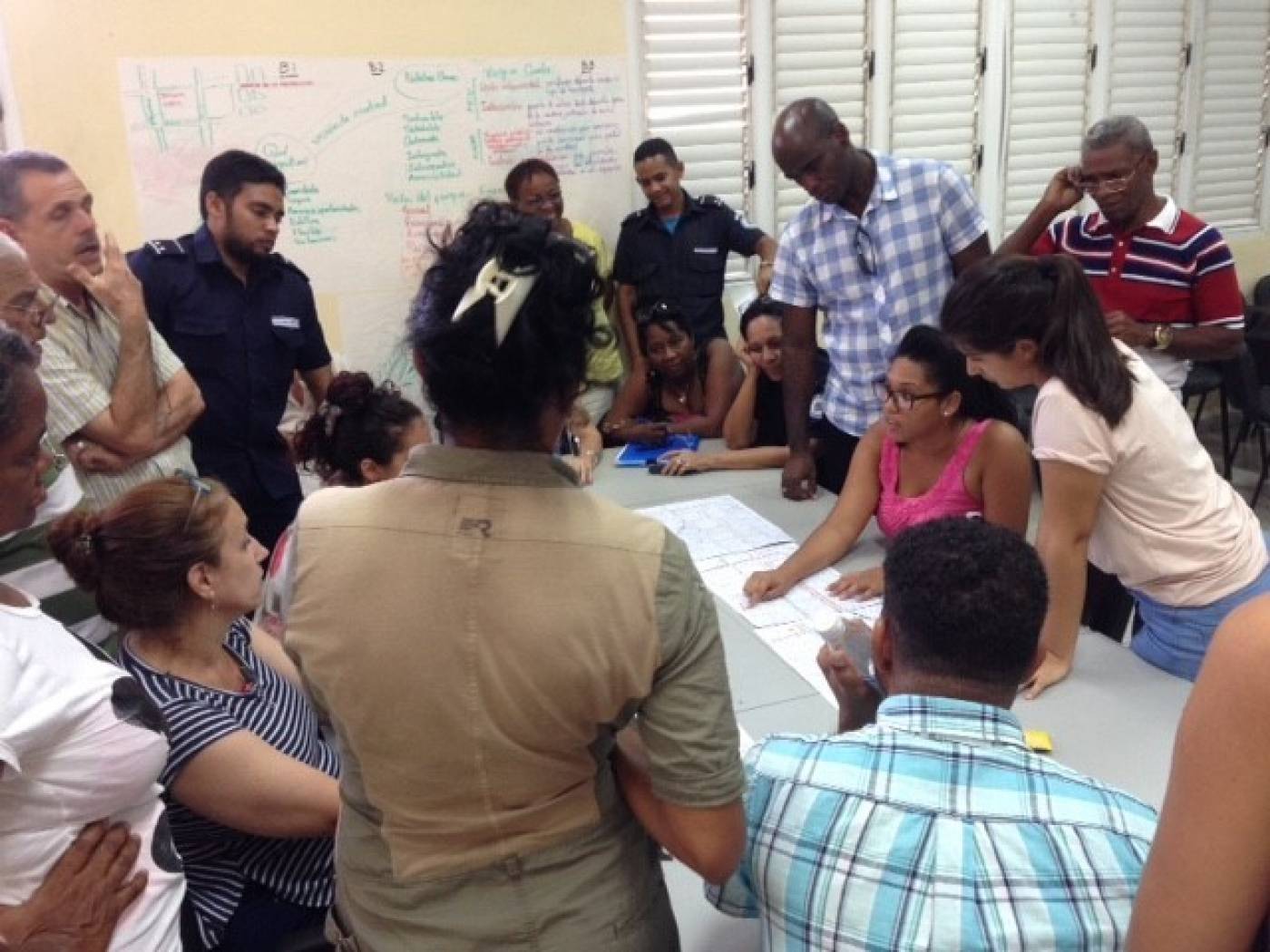
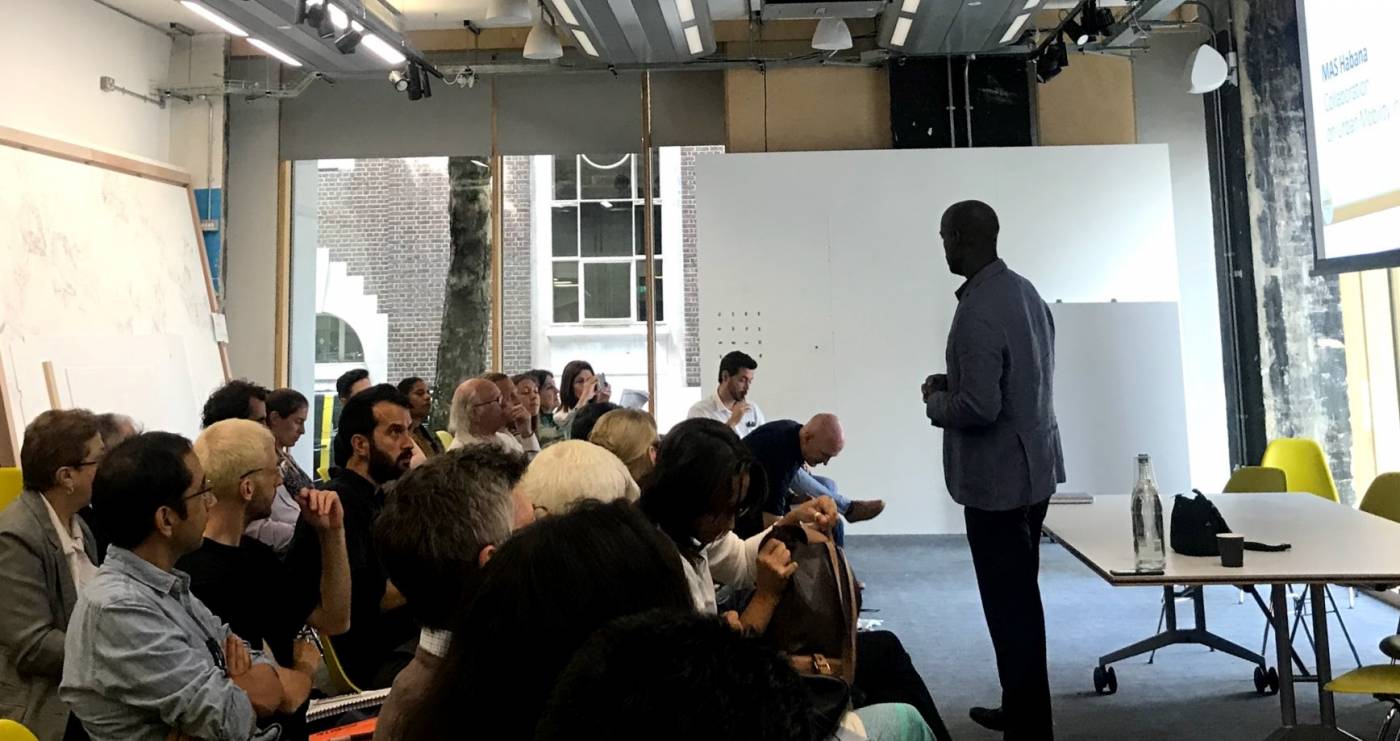
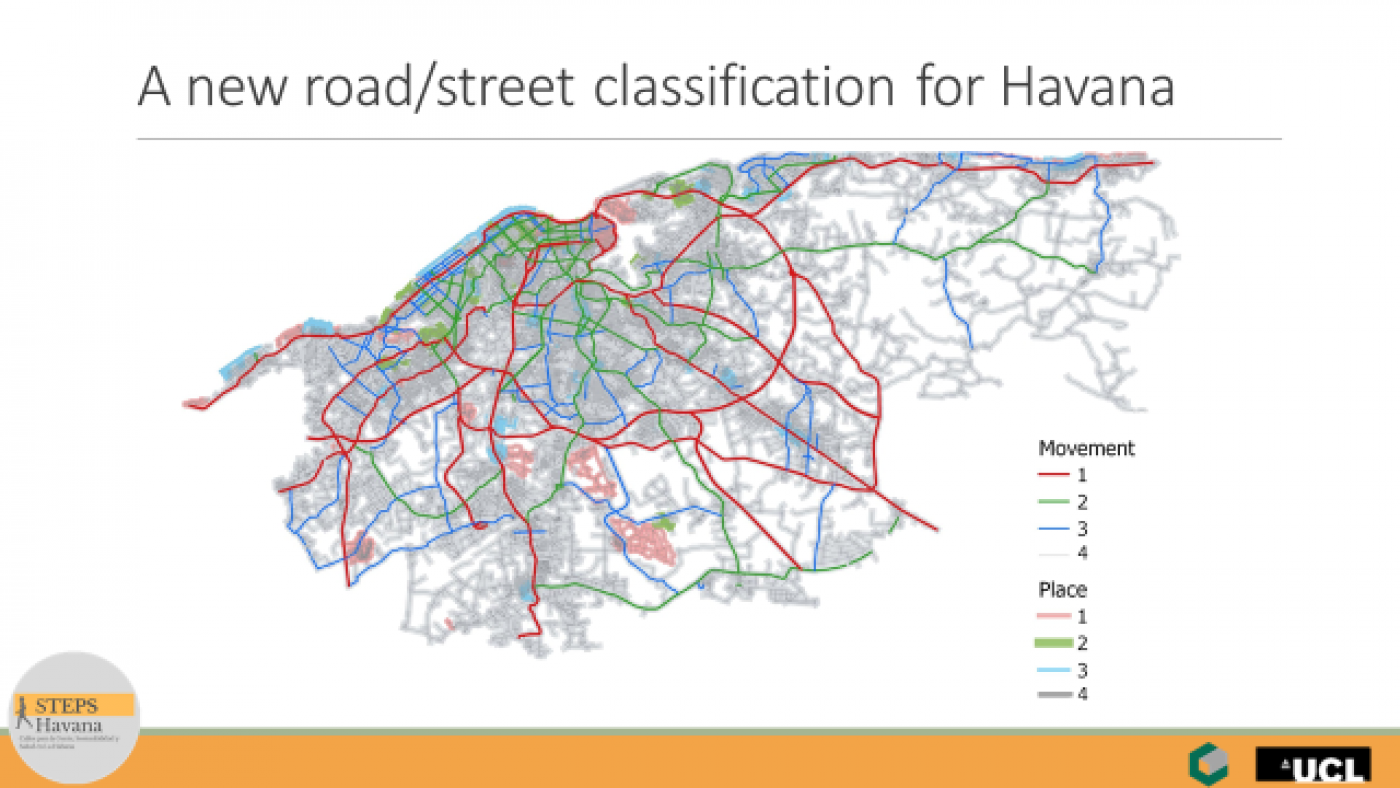
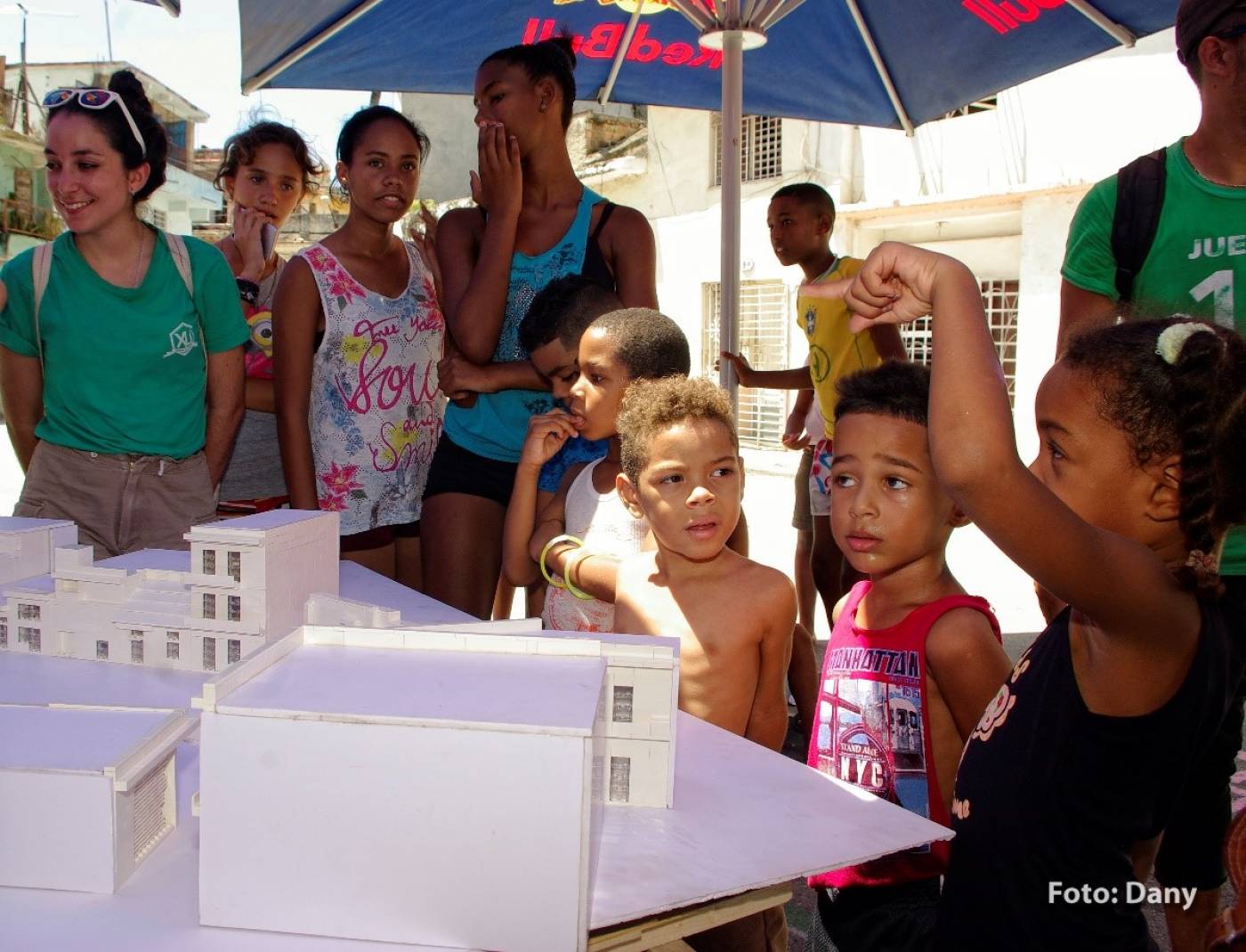
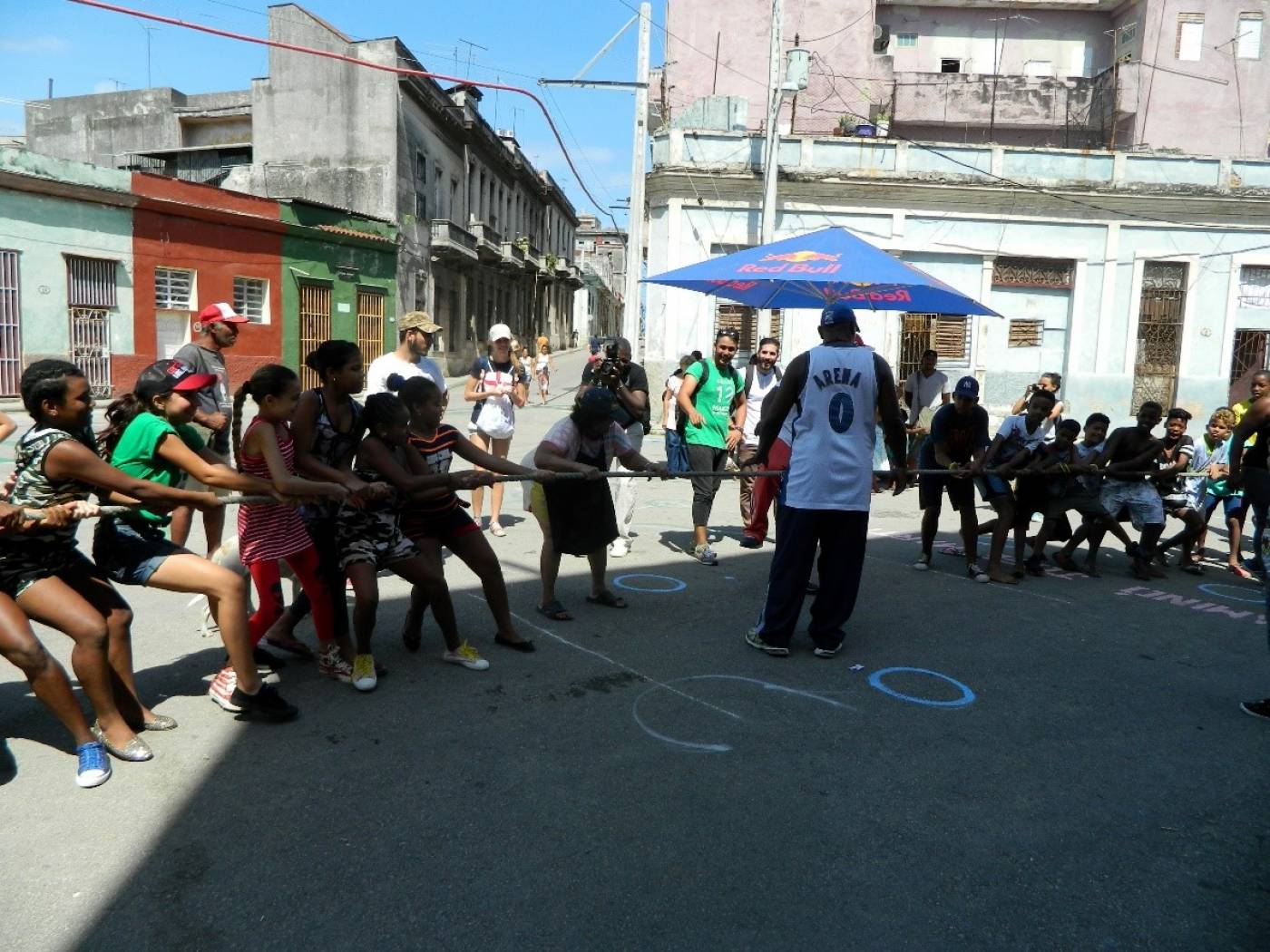
Havana is unique and so are its streets, with fewer vehicles, lower population growth and less urban sprawl than other cities in the region. Most motorised trips are on public transport, and more than half of all trips are on foot. Together with a relatively high degree of personal security, this means that Havana’s walking environment could be much friendlier than other cities. However, pedestrians have to contend with the poor condition of the infrastructure, excessive speeds enabled by low traffic volumes, and poor air quality. Havana´s streets deserve a thoughtful approach because the possibilities for improvement are enormous – and a UCL-Cuban research collaboration project, called ‘MAS+Havana’ (mobility, accessibility, sustainability for Havana) aims to contribute towards making these possibilities into reality.
The collaboration, which began in 2016, encompasses research and engagement to improve mobility, create positive changes to the environment, reduce carbon emissions, support Cuba’s efforts to be energy efficient and promote urban equity in Havana. At the seminar the team described a six-month project called STEPS-Havana (STreet Environments for People Sustainability and Health in Havana). The project involved citywide analysis of Havana’s street network, highlighting the implications for urban planning at different scales when we consider walking as the central element of mobility, and see streets not merely as conduits for mobility, but as public spaces that are part of the social fabric and the cultural and historical heritage of the city.
The MAS+Havana research collaboration has had a significant impact on mobility policies in Havana by serving as a source of technical and scientific support to the city’s transport authority (Dirección General de Transporte, DGT). This research is particularly valuable to the DGT at this time, as it is responsible for two important projects for the future of transport, mobility and accessibility in the city: drawing up a ‘sustainable urban mobility plan’ (financed by Euroclima); and undertaking a study of how to achieve a low-carbon mobility system in Havana (financed by the UNDP/GEF).
-----
The UCL project team participating in the seminar were: Dr. Emily Morris from the Institute of the Americas; Professor Nick Tyler, Professor Peter Jones, Dr. Paulo Anciaes and Adriana Ortegon from the Centre from Transport Studies at CEGE; Professor Jenny Mindell from the Institute of Epidemiology & Health; and Professor Julio D. Davila and Dr. Ashley Dhanani from the Bartlett School of Architecture. The Cuban research partners participating at the event were: Professor Jorge Peña, Professor Joiselen Cazanave and Mr. Adrian Gonzalez, from the faculty of architecture at Havana’s Technological University, known as CUJAE. We were also delighted to welcome Guadalupe Rodríguez, Director of Planning at Havana’s transport authority, the DGT, and Reynier Campos, the authority’s Director of Technical Planning, who presented the authority’s work, plans and hopes for the city; and Olena Navas, from the Cuban Embassy. Two further CUJAE colleagues from the faculty of mechanical engineering, Laksmi Penabad and Yamir Sánchez, were also able to join us during their first visit to London to explore possibilities for research collaboration on low-carbon transport technologies.
This research collaboration developed as part of the UCL-Cuba Research Network, based at the UCL Institute of the Americas.
 Close
Close

